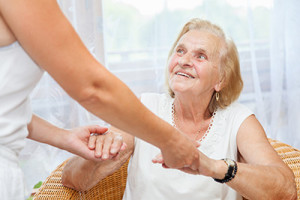
Is it Time for In-Home Senior Care? Signs to Look For As our loved ones age, their needs and requirements change, often requiring more attention and assistance to maintain their quality of life. For families in Windsor, Ontario, and the surrounding area, Amy’s Helping Hands is here to provide the support your aging loved ones deserve. But how do you know when it’s time to consider in-home senior care? In this article, we’ll outline some key signs to look for, helping you make the best decision for your family. Safety Concerns One of the most significant indicators that it’s time for in-home senior care is safety concerns. If you’ve noticed that your loved one is struggling with mobility, balance, or falls have become a frequent occurrence, it’s essential to address these issues promptly. Amy’s Helping Hands can provide professional caregivers who can ensure a safe environment, reducing the risk of accidents and injuries. Decline in Daily Living Abilities Keep an eye out for any decline in your loved one’s ability to perform…

Create Your All-Star Care Team in 5 Steps What family caregivers often need most is sound advice, regular respite and an extra set of hands. Friends may scatter when one becomes the primary caregiver for a spouse or parent, and not everyone has siblings or other family members they can depend on to share the load. A carefully selected care team is a necessary complement to a loved one’s detailed care plan. Step 1: Draft a list of prospective team members Write down the name of each family member, friend or neighbor with whom you regularly interact. Forego any initial judgements or doubts about their usefulness in your care plan—just let the ideas flow. Step 2: Assess each individual’s strengths Assess the strong suit of each person on your list. Is your best friend financially savvy? Can your cousin listen to you vent for as long as you need to without interrupting or casting judgement? Does your neighbor offer to help keep an eye on Mom when she’s tinkering outside in the garden? Each of these people have specific talents…

The new consolidated caregiver tax credit – how it works If you care for and support a family member, the tax system currently provides three potential caregiver non-refundable credits you may be eligible to claim on your 2016 tax return: the infirm dependant credit, the caregiver credit and the family caregiver credit. These credits are intended to compensate you for part of the non-discretionary, out-of-pocket expenses that caregivers often incur, but the rules are complex and confusing. Fortunately, last month’s federal budget announced, for 2017, a significant simplification and consolidation of these three non-refundable credits, into one: the new Canada Caregiver Credit. Let’s review the current rules and then see what’s changing going forward. The current system (for 2016 returns) The current system includes three credits, with varying eligibility conditions based on the circumstances of the caregiver and the dependant: Infirm dependant credit: This is a 15 per cent non-refundable tax credit for individuals who support an adult…
Mom or Dad is Coming Home from the Hospital…. What to expect. When your loved one has been in the hospital, coming home can bring many changes and challenges. Whether it is living alone after a medical event or moving in with family members, a plan is needed before coming home. Prepare for the fact that Life is going to change – Things to consider are: • The level of support they may need for the short and long term • Changes in medications • Managing time for appointments and rehab visits • Their ability to get around • Anxieties about if or when the next hospitalization may occur • How much support will they need to be comfortable? • Do I have enough time to adequately care for them? Talk to the professionals in the social work and discharge planning departments at the hospital and CCAC about what to expect. Base your plan upon their suggestions. It may be recommended you obtain or purchase and install home supportive…


















